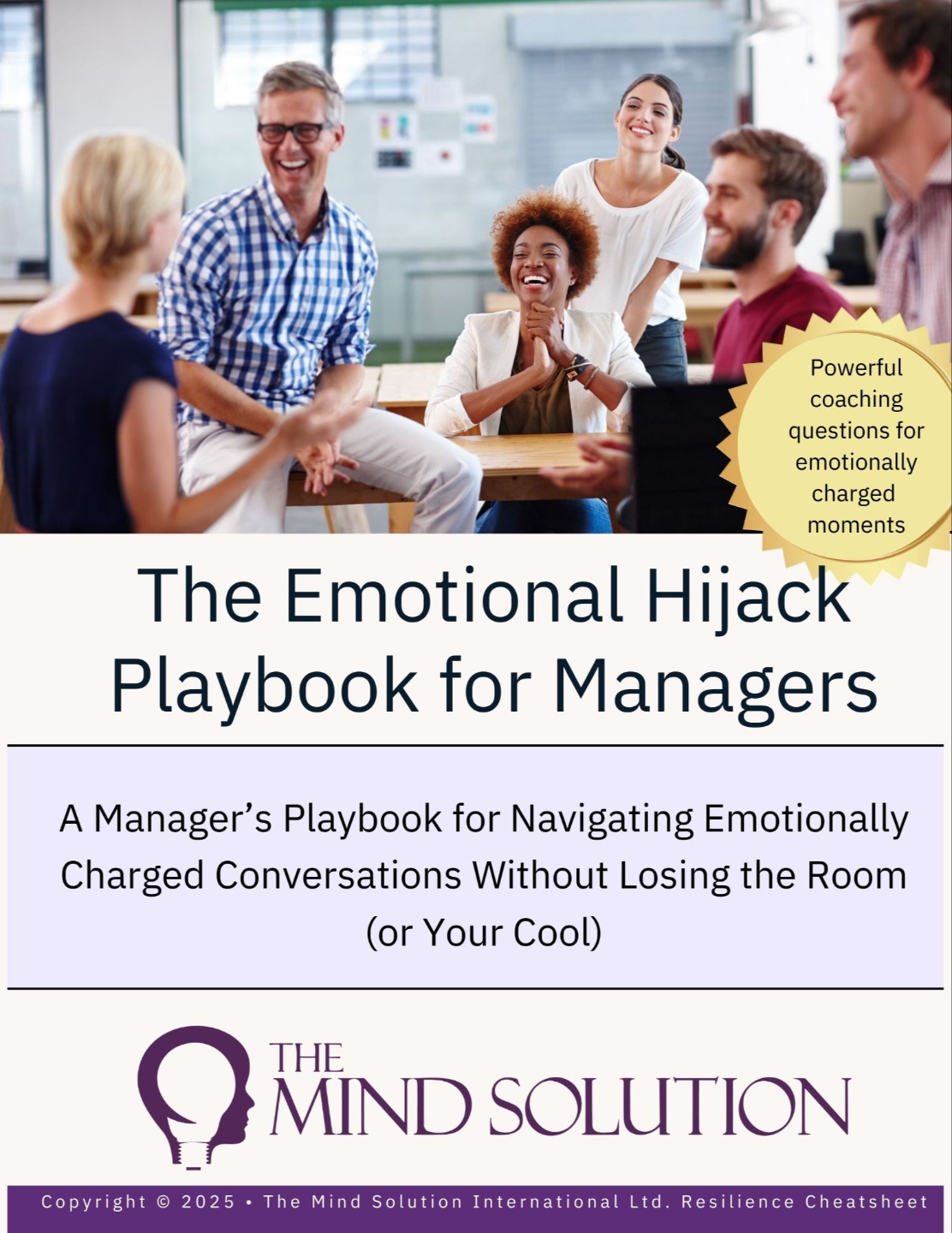What Signs Are You Sending Out as a Manager?
Aug 01, 2025
When I run mental health training for managers or deliver emotional intelligence workshops, there’s a question I love to ask early on:
What signs are you sending out as a leader?
It’s a powerful moment. You see the flicker of realisation behind the eyes of people who haven’t stopped to reflect in months, maybe years.
Because here’s the thing…
Most of us don’t consciously think about the signals we’re broadcasting.
Not just in what we say, but how we say it. How we show up. What we don’t say.
And especially how we make people feel.
Emotional intelligence isn’t just a buzzword. It’s leadership currency.
We’d love to think that most managers have high levels of emotional intelligence. That they’ve been trained in how to build trust, regulate their emotions, and spot subtle shifts in energy or behaviour in their teams.
But if you’ve worked in HR or been anywhere near an employment tribunal outcome recently, you’ll know that’s… optimistic.
Because here’s the truth:
Most managers are promoted because they’re good at their job—not because they’re good with people.
You’ve probably seen it.
The brilliant engineer who can design complex systems but doesn’t know how to have a one-to-one.
The finance manager who’s a wizard with Excel but struggles with emotional nuance.
And yes, even some HR leaders who carry the title but never learned how to lead people with presence.
It’s not their fault. Emotional intelligence training for leaders isn’t standard in most organisations. And it should be.
Because when we talk about mental health awareness training for managers, what we’re really talking about is helping people raise their levels of self-awareness, so they’re not leading on autopilot.
What experience are you creating for your team?
Another question I ask in our mental health leadership training is this:
“If I interviewed your team, what do you think they’d say it feels like to work for you?”
It’s not a performance review. It’s a mirror. Because leadership is about impact, not intent.
You might want to be the kind of manager who’s approachable, calm, and consistent.
But if you don’t have regular one-to-ones… if your camera’s off during check-ins… if you’re constantly behind closed doors or sending clipped emails… your team’s experience of you doesn’t match that intention.
That gap? That’s the space where disconnection, stress, and unspoken concerns start to grow.
And those small signals you didn’t mean to send? They start shaping your whole culture.
People read your energy before you speak a word
Now, before you worry that I’m about to get woo-woo on you, let me bring it back to physics for a second.
We live in an energetic universe. Everything is energy. Including us.
You’ve felt this before when someone walks into a room and you can instantly feel if they’re tense, warm, closed off, or open. That’s not just body language. That’s energy.
Managers lead with their energy, whether they know it or not.
So when we talk about employee wellbeing in the workplace, it’s not just about what perks or policies are in place. It’s about the emotional climate your managers are creating—meeting by meeting, conversation by conversation.
Are you broadcasting safety? Or stress?
Are you giving off calm presence? Or chaotic urgency?
Why raising self-awareness isn’t optional anymore
Let’s be honest, people have been through a lot. The last few years have cracked open conversations about mental health like never before. But awareness is just the start.
If we want to build workplaces that foster real wellness at work, we need leaders who don’t just know what psychological safety is; they create it.
That doesn’t come from a poster or an e-learning module. It comes from deeper, embodied awareness. It comes from leaders asking:
-
“How do people feel in meetings I run?”
-
“What kind of culture am I modelling?”
-
“Am I treating my team like humans… or like tasks?”
When we deliver online mental health training or face-to-face emotional intelligence workshops, we help leaders tune into those micro-moments.
Not because we want to overwhelm them with pressure to get everything right.
But because one emotionally intelligent manager can change the culture of an entire team.
And when that happens, performance improves, absence reduces, people feel safer… and the need for crisis-level intervention starts to disappear.
Start with this: What kind of leader do you want to be?
You don’t need to fix everything overnight. But here’s something to reflect on today:
-
What kind of leader do you want to be?
-
What experience do you want people to have of working with you?
-
And… are you acting in alignment with that vision?
If not, that’s not failure. That’s feedback. That’s a place to grow from.
And the more self-aware you become, the more conscious your signals become.
Because when you show up with intentional energy—when your actions reflect who you truly want to be—you create the kind of environment where people can breathe, contribute, and thrive.
And that’s how we shift from managing mental health… to leading humans well.
The Emotional Hijack Playbook For Managers
A Manager’s Free Resource for Navigating Emotionally Charged Conversations Without Losing the Room (or Your Cool).
Perfect to use in your next one-to-one.







